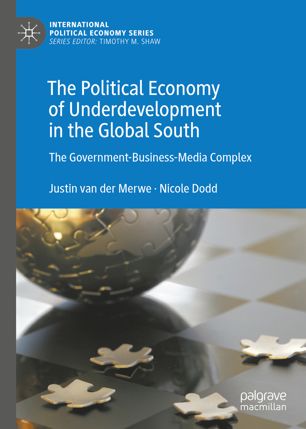

Most ebook files are in PDF format, so you can easily read them using various software such as Foxit Reader or directly on the Google Chrome browser.
Some ebook files are released by publishers in other formats such as .awz, .mobi, .epub, .fb2, etc. You may need to install specific software to read these formats on mobile/PC, such as Calibre.
Please read the tutorial at this link. https://ebooknice.com/page/post?id=faq
We offer FREE conversion to the popular formats you request; however, this may take some time. Therefore, right after payment, please email us, and we will try to provide the service as quickly as possible.
For some exceptional file formats or broken links (if any), please refrain from opening any disputes. Instead, email us first, and we will try to assist within a maximum of 6 hours.
EbookNice Team

Status:
Available4.7
39 reviewsThis book presents a new theory explaining underdevelopment in the global South and tests whether financial inputs, the government-business-media (GBM) complex and spatiotemporal influences drive human development. Despite the entrance of emerging powers and new forms of aid, trade and investment, international political-economic practices still support well-established systems of capital accumulation, to the detriment of the global South. Global asymmetrical accumulation is maintained by ‘affective’ (consent-forming hegemonic practices) and ‘infrastructural’ (uneven economic exchanges) labours and by power networks. The message for developing countries is that ‘robust’ GBMs can facilitate human development and development is constrained by spatiotemporal limitations. This work theorizes that aid and foreign direct investment should be viewed with caution and that in the global South these investments should not automatically be assumed to be drivers of development.